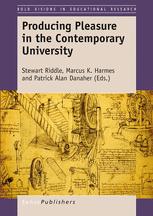

Most ebook files are in PDF format, so you can easily read them using various software such as Foxit Reader or directly on the Google Chrome browser.
Some ebook files are released by publishers in other formats such as .awz, .mobi, .epub, .fb2, etc. You may need to install specific software to read these formats on mobile/PC, such as Calibre.
Please read the tutorial at this link. https://ebooknice.com/page/post?id=faq
We offer FREE conversion to the popular formats you request; however, this may take some time. Therefore, right after payment, please email us, and we will try to provide the service as quickly as possible.
For some exceptional file formats or broken links (if any), please refrain from opening any disputes. Instead, email us first, and we will try to assist within a maximum of 6 hours.
EbookNice Team

Status:
Available4.6
28 reviewsAcademics working in contemporary universities are experiencing unprecedented and unsustainable pressure in an environment of hyper-performativity, metrics and accountability. From this perspective, the university produces multiple tensions and moments of crises, where it seems that there is limited space left for the intrinsic enjoyment arising from scholarly practices. This book offers a global perspective on how pleasure is central to the endeavours of academics working in the contemporary university, with contributors evaluating the opportunities for the strategic refusal of the quantifying, stultifying and stupefying delimiters of what is possible for academic production. The aim of this book is to open up spaces for conversation, reflection and thought, in order to think, to be and to do differently – pleasurably. Contributors rupture the bounds of what is permissible and possible within their daily lives, habits and practices. As such, this book addresses increasingly significant questions. What are some of the multiple and different ways that we can reclaim pleasure and enhance the durations and intensities of our passions, desires and becomings within the contemporary university? How might these aspirations be realised? What are the spaces for the pleasurable production of research that might be opened up? How might we reconfigure the neoliberal university to be a place of more affect, where desire, laughter and joy join with the work that we seek to undertake and the communities whom we serve?